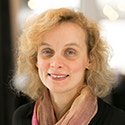Simons Fellows in Theoretical Physics
The Simons Fellows in Theoretical Physics program made sabbatical research leaves more productive by extending them from a single term to a full academic year. Sabbatical research leaves from classroom teaching and administrative obligations can provide strong intellectual stimulation and lead to increased creativity and productivity in theoretical research.
Please see the general instructions for application submission.
Please be sure to submit a proposal using the appropriate application (Mathematics and Physical Sciences — Simons Fellows in Theoretical Physics).
Proposal attachments should be single-spaced and in typeface no smaller than 10-point font. Margins must be at least half an inch in all directions.
Please complete the application as follows:
- Title Page:
- Enter the title of the application.
- Answer sabbatical certification questions. Sabbatical approval is not required at the time of application but must be provided to the foundation at least three months prior to the start of the applicant’s award.
- Enable Other Users to Access this Proposal: This screen allows users to give other users access to the grant application, if necessary.
- Applicant: This information is preloaded from the applicant’s professional profile. Please indicate the applicant’s website, if applicable.
- Organization/Institution: This information is preloaded from the institutional profile. The Simons Foundation requires the provision of contact information for institutional officials for both pre- and post-award management. Please select names from the list of officials supplied with your proposalCENTRAL’s institution profile and click the Add button. If the contact you need is not on the list, enter the contact’s email address and click the Add button. Note that the officials added here are the only individuals who will automatically have access to this grant if the application is awarded. All other officials not listed in the application (including primary signing officials and primary financial officers) must request access to a grant after an application is awarded. Also, note that proposalCENTRAL’s institution profile is not tied to the Simons Foundation’s institutional profile. Officials added at the application stage are not automatically added to the Simons Foundation’s institutional profile. Please see the Simons Foundation’s grant policies for more information regarding institutional contacts.
- Abstract & Field Selection: Please provide a brief summary of where the applicant’s requested leave will take place and the main scientific goals during this time. Also, select the applicant’s field(s) as it applies to the applicant’s research in the last five years.
- Budget Summary & Justification: Enter start and end dates for the proposed full year leave period and all requested budget amounts in U.S. dollars. Please round up to the nearest dollar. In the justification section, provide the applicant’s known or expected academic-year salary for the full year of the leave period. If this is not yet finalized, please include the expected date of salary increase. Please also provide a detailed description of how the leave-related expense funding will be used. An insufficient budget justification may result in the proposal not being considered further.
- Proposal Attachments (attachments must be uploaded as unlocked PDFs; please confirm this before uploading):
- Statement of Recent Work (two-page limit, plus up to one page for references and figures, which can be embedded within the text): A statement explaining the candidate’s most significant scientific work over the previous five years.
- Statement of Sabbatical Plans (two-page limit, plus up to one page for references and figures, which can be embedded within the text): A statement summarizing the applicant’s plans for the entire leave period, the institution or institutions at which the leave is to be spent and the main scientific goals.
- Curriculum Vitae (two-page limit): Must include Ph.D. year, institution, advisor and positions held.
- Current and Pending Support: The list of current and pending support should include all financial resources — whether federal, nonfederal, commercial or institutional — available in direct support of the applicant’s research endeavors. Each support item listed should include the following:
- indication of active or pending,
- award number,
- source of support,
- title of project,
- dates of approved/proposed project,
- annual direct costs and
- notification date (if known and only for proposed projects).
- Publications List: A list of up to five publications from the past five years and up to five other publications.
- Students List: Current or recent (past five years) graduate students, postdoctoral fellows and Ph.D. students, as applicable, including their dissertation topics and likely date of completion.
- Letter from Other Institution (if applicable):
- If the leave is to be taken at another institution or institutions and will last longer than one month, confirmation must be submitted from the host institution(s) in the form of a letter signed by relevant department chairs or other appropriate university authorities stating that the visit is approved and briefly describing the facilities that will be made available to the applicant.
- If the letter of confirmation from the prospective host institution(s) cannot be obtained, then the application must include a backup plan describing what would be done if the visit(s) were not possible. The location of the sabbatical must be confirmed, in the form of the above-mentioned letter, to the foundation at least three months prior to the start of the applicant’s award.
- The location must be at either the originally proposed host institution or at the institution(s) specified in the backup plan, unless explicit permission is obtained from the foundation no later than three months before the start of the leave. Please use the Letter from Other Institution as the attachment type if including a backup plan.
- 501(c)(3) Equivalency Determination Letter from the IRS or Equivalency Certificate from NGOsource (if applicable):
- See Simons Foundation’s grant policies for requirements for grants to international institutions. The Simons Foundation requires that an institution is the equivalent of a U.S. public charity before making the award.
- If a Canadian institution has been issued a determination letter from the Internal Revenue Service (IRS) of the United States stating exemption under 501(c)(3) and, furthermore, either a 509(a)(1), (2) or (3) classification, a copy of this letter must be uploaded to the application.
- If a Canadian institution has previously been approved as equivalent of a U.S. public charity via NGOsource, a copy of the issued certificate must be uploaded to the application.
- If a Canadian institution does not have the letter or certificate at the application stage, do not upload anything for this attachment type.
- If a Canadian institution is selected for funding and does not have one of the aforementioned documents, the foundation will require that the institution complete an equivalency determination with NGOsource. The foundation will handle all administrative and financial aspects of this determination.
- IRS letters should not be uploaded for U.S. institutions.
- Signed Signature Page:
- Must be downloaded in the Signature Page(s) section of the application, signed by the designated signing official from the institution’s sponsored research office (or equivalent) and then re-uploaded as a proposal attachment.
- Please note that not all fields on the generated signature page will be populated and those fields should be left blank.
- Only the signed first page of the signature page PDF file needs to be uploaded for this requirement.
- An application should not be submitted without a signature on the signed signature page.
-
PI Demographics: Please enter demographic data for the applicant. For required responses, the applicant can select Prefer Not to Disclose. Please click on Edit Professional Profile and navigate to Personal Data for Applications to update or change selections.
The demographic data provided by applicants to the Simons Foundation will serve multiple purposes: to help us understand how our grantmaking reflects the communities we seek to serve and to equip our staff with critical data to help create equitable funding opportunities as one part of our overall commitment to diversity, equity and inclusion. Demographic data will not be shared with reviewers or otherwise used during the application review process. Aggregate data may be used publicly. Demographic data may be visible to a subset of Simons Foundation staff, such as programmatic and grantmaking staff. If you wish to review our data collection and use practices, please refer to the Simons Foundation’s privacy policy.
- Validate: Click the Validate button to check for any missing required information or files. All missing required information will be listed on the screen and must be corrected before the application can be submitted.
- Signature Page(s): Once all sections are completed, the signed signature page is to be downloaded in this section of the application, signed by the signing official from the institution’s sponsored research office (or equivalent) and then re-uploaded as a proposal attachment.
- Submit: This section will only appear if the deadline has not passed.
-
My university does not call leaves “sabbatical,” but rather “leave without pay” or “research leave.” Am I still eligible to apply?
You are eligible to apply for the Simons Fellows program if you are eligible for a leave equivalent to a sabbatical, you will be granted a yearlong leave and at least 50 percent of the year’s salary is provided by your university.
-
I have a tenure-track position. Am I eligible to apply?
No, only those with tenured positions are eligible for the fellowship.
-
Can the Simons Fellowship support a sabbatical in which the recipient remains at his or her home institution?
Yes, the fellowship can support this type of sabbatical.
-
Can my sabbatical location be outside of the United States or Canada?
Yes, this is allowable.
-
Although I will not be teaching any classes during my sabbatical, I will have graduate students. Is this acceptable?
Yes, this is acceptable.
-
My research area is biological physics. Will the program consider my application?
It is not our intention to support biological physics with this program. However, if your work is within the theoretical biophysics area, you would be eligible to apply.
-
If I am not appointed in a physics department, am I eligible for a Simons Fellowship in Theoretical Physics?
Applicants will be evaluated as theoretical physicists and in terms of their potential contributions to physics, and they must fulfill all of the eligibility requirements, but there is no restriction on the home department.
-
Will the foundation accept applications from computer scientists?
It is not our intent to support computer science with this program.
-
Can the Simons Fellowship be used to match another external fellowship?
No, the Simons Fellowship cannot be used to match another external fellowship.
-
If my total academic salary for the foundation-supported term is greater than $100,000, am I allowed to make up the difference from other sources?
Yes, as long as your total salary, including foundation support for the period of the leave, is less than or equal to your academic year salary.
-
Is there a limit to the number of applicants per university?
No, there is no limit.
-
Are emeriti faculty eligible?
Retired and emeriti faculty are not eligible.
-
I have an adjunct appointment. Am I eligible?
The intent of the program is to support scientists at academic institutions. A scientist whose primary appointment (as determined by source of salary and level of teaching commitments) is at a national laboratory or other research institute but who has an adjunct, courtesy or backup appointment at an academic institution is not eligible. An adjunct faculty member whose primary employer is an academic institution and who is eligible on the basis of his or her research is eligible for the Simons Fellowship.
-
I am not a U.S. or Canadian citizen; am I eligible to be a Simons Fellow?
U.S. or Canadian citizenship is not required, but a grantee’s primary appointment must be at a U.S. or Canadian institution in order to apply to or hold the grant.
-
If I am not awarded a Simons Fellowship this year, may I reapply next year?
There is no limit on the number of times one can apply, as long as one is eligible for a sabbatical.
-
To whom is the grant awarded?
The grant is awarded to the Simons Fellow’s home institution.
-
How do I get reimbursed for eligible expenses?
As the grant is made through the awardee’s institution, one should submit requests for reimbursement and purchases as prescribed by the awardee’s department.
2022
Simon Caron-Huot, Ph.D.
Csaba Csáki, Ph.D.
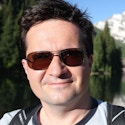
Aida El-Khadra, Ph.D.
Daniel Fisher, Ph.D.
2022
Eanna Flanagan, Ph.D.
Eun-Ah Kim, Ph.D.
Yong Baek Kim, Ph.D.
David Lubensky, Ph.D.
Richard O’Shaughnessy, Ph.D.
Emily Rauscher, Ph.D.
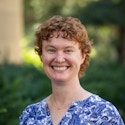
2021
William Bialek, Ph.D.

Glennys Farrar, Ph.D.
Alexander Kusenko, Ph.D.
Finn Larsen, Ph.D.
Rahul Nandkishore, Ph.D.
2020
Lea Ferreira dos Santos, Ph.D.
Eric Ford, Ph.D.
Kristjan Haule, Ph.D.
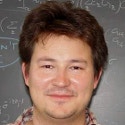
Lam Hui, Ph.D.
Christopher Jarzynski, Ph.D.
Mehran Kardar, Ph.D.
Aaron Pierce, Ph.D.
Andrew Strominger, Ph.D.
2019
Boris Altshuler, Ph.D.
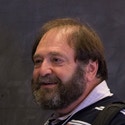
Tony Gherghetta, Ph.D.
David Huse, Ph.D.
Renata Kallosh, Ph.D.
Andrei Linde, Ph.D.
Brian Metzger, Ph.D.
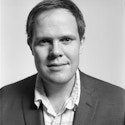
Elena Pierpaoli, Ph.D.
Mark Robbins, Ph.D.
Di Xiao, Ph.D.
2018
Thomas Baumgarte, Ph.D.
Raphael Bousso, Ph.D.
Bulbul Chakraborty, Ph.D.
Marc Favata, Ph.D.
Gregory Fiete, Ph.D.
Julian Krolik, Ph.D.
Anna Krylov, Ph.D.
Emil Martinec, Ph.D.
David Morrison, Ph.D.
Gil Paz, Ph.D.
Jesse Thaler, Ph.D.
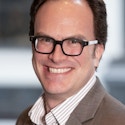
Todd Thompson, Ph.D.
2017
Philip Argyres, Ph.D.
Robijn Bruinsma, Ph.D.
Robert Caldwell, Ph.D.
Claudio Chamon, Ph.D.
Aashish Clerk, Ph.D.

Eric D’Hoker, Ph.D.
Matthew Headrick, Ph.D.
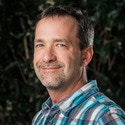
Andrew Jordan, Ph.D.
Gabriel Kotliar, Ph.D.
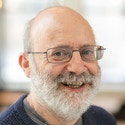
Alice Quillen, Ph.D.
Lisa Randall, Ph.D.
Marcus Spradlin, Ph.D.
Neal Weiner, Ph.D.
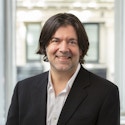
2016
Zoltán Haiman, Ph.D.
Lawrence Hall, Ph.D.
Jeffrey Harvey, Ph.D.
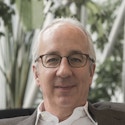
Wick Haxton, Ph.D.
Petr Hořava, Ph.D.
Clifford Johnson, Ph.D.
Catherine Kallin, Ph.D.
Eun-Ah Kim, Ph.D.
Dong Lai, Ph.D.
Tom Lubensky, Ph.D.
Mark Newman, Ph.D.
Maxim Perelstein, Ph.D.
Andrew Strominger, Ph.D.
Timo Thonhauser, Ph.D.
2015
Robert Brandenberger, Ph.D.
Eugene Demler, Ph.D.
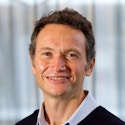
Veit Elser, Ph.D.
Steven Furlanetto, Ph.D.
Charles Gammie, Ph.D.
Michael Gutperle, Ph.D.
Elizabeth Jenkins, Ph.D.
Patrick Lee, Ph.D.
Aneesh Manohar, Ph.D.
Adilson Motter, Ph.D.
Stephen Naculich, Ph.D.
Frank Timmes, Ph.D.
Nandini Trivedi, Ph.D.
Paul Wiegmann, Ph.D.
2014
Zvi Bern, Ph.D.
Eric G. Blackman, Ph.D.
Piers Coleman, Ph.D.
Keshav Dasgupta, Ph.D.
Benjamin Davidovitch, Ph.D.
Andrei Derevianko, Ph.D.
Charles Doering, Ph.D.
Glennys Farrar, Ph.D.
Paul Ginsparg, Ph.D.
Michael Hermele, Ph.D.
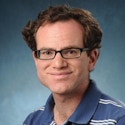
Andrea Liu, Ph.D.
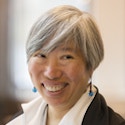
Liam McAllister, Ph.D.
Sonia Paban, Ph.D.
Christopher Reynolds, Ph.D.
Anders Sandvik, Ph.D.

David Vanderbilt, Ph.D.
Thomas Weiler, Ph.D.
2013
Roger Blandford, Ph.D.

Eric Braaten, Ph.D.
Mirjam Cvetic, Ph.D.
Yuval Grossman, Ph.D.
F. D. M. Haldane, Ph.D.
Erika Birgit Kaufmann, Ph.D.
Alexander Maloney, Ph.D.
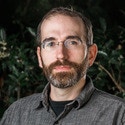
M Cristina Marchetti, Ph.D.
Roberto Merlin, Ph.D.
Kimball Milton, Ph.D.
Aditi Mitra, Ph.D.
Leonardo Rastelli, Ph.D.
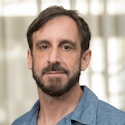
Witold Skiba, Ph.D.
Anatoly Spitkovsky, Ph.D.
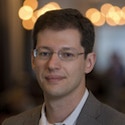
Nicholas Warner, Ph.D.
2012
Brett Esry, Ph.D.
Jonathan Feng, Ph.D.
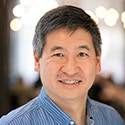
Katherine Freese, Ph.D.
Steven Giddings, Ph.D.
Steven Gubser, Ph.D.
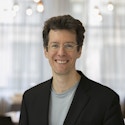
Tin-Lun Ho, Ph.D.
Vassiliki Kalogera, Ph.D.
Hong Liu, Ph.D.
Steven Louie, Ph.D.
Ian Low, Ph.D.
Maxim Lyutikov, Ph.D.
Chung-Pei Ma, Ph.D.
Cole Miller, Ph.D.
Gregory Moore, Ph.D.
Yasunori Nomura, Ph.D.
Warren Pickett, Ph.D.
Anatoli Polkovnikov, Ph.D.
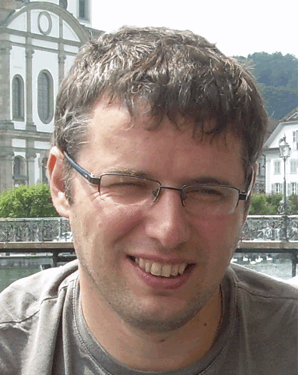
Mark Robbins, Ph.D.
Paul Steinhardt, Ph.D.
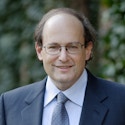
Senthil Todadri, Ph.D.
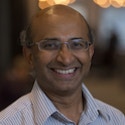
John Toner, Ph.D.
Salvatore Torquato, Ph.D.
Yaroslav Tserkovnyak, Ph.D.
Smitha Vishveshwara, Ph.D.
Ashvin Vishwanath, Ph.D.
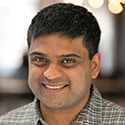
Anastasia Volovich, Ph.D.
